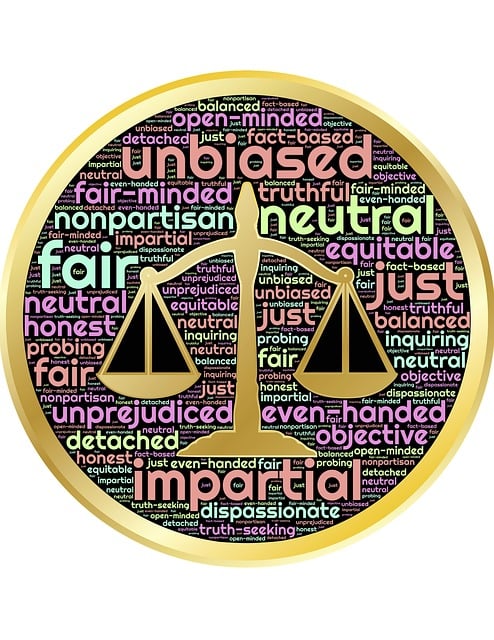Understanding consumer protection laws is crucial for safeguarding buyer interests against unfair business practices, including misleading advertising and predatory lending. When such violations occur, knowing how to file an appeal in a criminal case, especially for white-collar defense, is vital. Meticulous documentation of harm done to consumers strengthens cases against businesses engaging in economic crimes, ensuring justice and compensation. The process involves strategic planning, thorough collection of evidence (contracts, communications, digital), and legal guidance from experienced attorneys for favorable outcomes through trials or alternative dispute resolutions. Defendants appealing criminal verdicts need an attorney specializing in appellate law to prepare comprehensive briefs within deadlines, challenging procedural errors and evidence inconsistencies.
Consumer protection suits are crucial tools for safeguarding your rights as a buyer. This comprehensive guide delves into the intricacies of consumer protection laws, empowering you to recognize unfair business practices and understand your legal options. From identifying potential harms to navigating the complex legal process, we provide actionable steps. Learn how to gather evidence, file a strong case, and even explore appeal processes in criminal cases involving consumer rights. Equip yourself with knowledge to protect your interests effectively.
- Understanding Consumer Protection Laws and Your Rights
- Identifying Unfair Business Practices and Harms
- Gathering Evidence and Documentation for Your Case
- Navigating the Legal Process: From Filing to Trial
- How to File an Appeal: Steps and Considerations in Criminal Cases
Understanding Consumer Protection Laws and Your Rights
Understanding Consumer Protection Laws and Your Rights is an essential step in safeguarding your interests as a buyer. These laws are designed to protect consumers from unfair business practices, ensuring they receive quality products or services. Familiarize yourself with federal and state-level regulations that cover areas like product safety, truth in advertising, and refund policies. Knowing your rights empowers you to take action if you’ve been a victim of deceptive marketing, faulty merchandise, or unfair billing practices.
If you believe a business has violated these laws, learning how to File an Appeal in Criminal Case can be crucial, especially for white-collar defense strategies. While not all consumer protection disputes lead to criminal charges, understanding the appeal process is valuable. In some instances, consumers may seek remedies through mediation or arbitration, while others might require taking the matter to court, where a judge or jury trials could provide recourse. A general criminal defense attorney can guide you through these complexities and ensure your rights are protected throughout the legal process.
Identifying Unfair Business Practices and Harms
Unfair business practices can take many forms, from misleading advertising to deceptive sales tactics and even predatory lending. Identifying these practices is crucial for consumer protection suits. Consumers often face harm in the form of financial loss, reduced product quality, or compromised privacy. These harms can range from minor inconveniences to significant economic setbacks, impacting individuals’ ability to make ends meet.
In cases of suspected white-collar and economic crimes, understanding the specific harm done to consumers is key when filing an appeal. Whether it’s a philanthropist or a member of a political community, for his clients’ sake, legal representatives must meticulously document the effects of these practices. By doing so, they strengthen the case against businesses engaging in such activities, ensuring justice and compensation for affected individuals.
Gathering Evidence and Documentation for Your Case
When building a strong case for consumer protection suits, meticulous documentation is key. Gather all relevant evidence that demonstrates the violation of consumer rights. This can include contracts, purchase records, communications with the business, and any reports or documents provided by regulatory bodies. Digital evidence, such as emails, social media interactions, or website archives, should be preserved and organized. It’s crucial to maintain a detailed log of all interactions with the defendant to strengthen your argument.
Understanding how to file an appeal in a criminal case can also be valuable when dealing with consumer protection matters. The process requires careful consideration and strategic planning. For both corporate and individual clients facing charges, especially in the realm of white-collar and economic crimes, retaining legal expertise is essential. An experienced attorney can guide you through each step, ensuring your rights are protected and increasing the chances of a favorable outcome, whether it culminates in a jury trial or an alternative dispute resolution method.
Navigating the Legal Process: From Filing to Trial
Navigating the legal process for consumer protection suits can be complex, but understanding the steps involved is key to achieving a favorable outcome. The initial phase begins with filing a complaint, where consumers detail their experiences and seek redress. This document should be thoroughly prepared, providing clear evidence of any violations or damages incurred. Once filed, the case enters the discovery period, allowing both parties to gather relevant information through depositions, documents, and expert testimony.
As the process unfolds, the consumer protection lawsuit may lead to various outcomes. A settlement agreement might be reached out of court, offering a mutually beneficial resolution. Alternatively, if the evidence strongly supports the plaintiff’s case, a judge or jury trial could result in winning challenging defense verdicts and securing significant compensation or a complete dismissal of all charges. Jury trials, in particular, offer a powerful platform for presenting complex consumer protection matters to decision-makers who decide the fate of the case.
How to File an Appeal: Steps and Considerations in Criminal Cases
Knowing how to file an appeal in a criminal case is crucial for any defendant seeking to avoid indictment or win challenging defense verdicts. The process begins by consulting with a qualified attorney who specializes in appellate law, as they can guide you through each step and ensure your rights are protected.
First, prepare a comprehensive brief outlining the legal arguments supporting your appeal. This should include a detailed account of procedural errors, inconsistencies in evidence, or any other issues that may have influenced the original verdict. Your attorney will help compile this, ensuring it complies with the respective business’s rules and regulations for appeals. Once ready, file the appeal within the specified timeframe to preserve your right to a review. Throughout this process, stay focused on presenting a compelling case, as appealing a criminal conviction requires a meticulous approach.
Consumer protection suits are a vital tool for ensuring businesses uphold their responsibilities. By understanding your rights, identifying unfair practices, gathering solid evidence, and navigating the legal process, you can effectively protect yourself and hold culpable parties accountable. In cases where a criminal appeal is necessary, such as in How to File an Appeal in Criminal Case scenarios, following proper procedures is crucial. These steps ensure fairness and provide a means to rectify potential injustices, ultimately fostering a more transparent and consumer-friendly marketplace.






